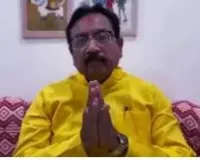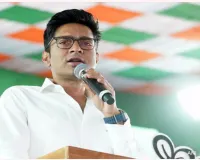CJI Gavai Asserts Judicial Restraint in Waqf Act Review
Chief Justice emphasizes courts' limited intervention in legislative matters unless a compelling case is presented.

During ongoing hearings on the Waqf (Amendment) Act, 2025, Chief Justice of India BR Gavai highlighted that the judiciary typically refrains from interfering in legislative matters unless a "very strong case" is made, underscoring the presumption of constitutionality of laws passed by Parliament.
Waqf Act Supreme Court: A division bench of Chief Justice of India (CJI) Justice BR Gawai and Justice Augustine George Masih began hearing various petitions challenging the Waqf Act today, May 20. Solicitor General Tushar Mehta presented arguments on behalf of the Central Government, while senior advocates Kapil Sibal and Abhishek Manu Singhvi argued the case on behalf of the petitioners. During this hearing, CJI Gavai made it clear that any law passed by Parliament has an element of constitutionality, and unless a concrete case comes up, the courts cannot interfere in it.
Hearing cannot be done in pieces
The Solicitor General informed that the court has identified three major issues on which he has already submitted his reply. However, the written arguments of the petitioners have now extended to many other issues. He said that he has filed his affidavit regarding these three issues and requested that the hearing be limited to these three issues. On the other hand, senior advocates Kapil Sibal and Abhishek Singhvi, who were challenging the provisions of the Waqf Act, 2025, opposed the argument that the hearing cannot be held in different parts.








.jpg)



